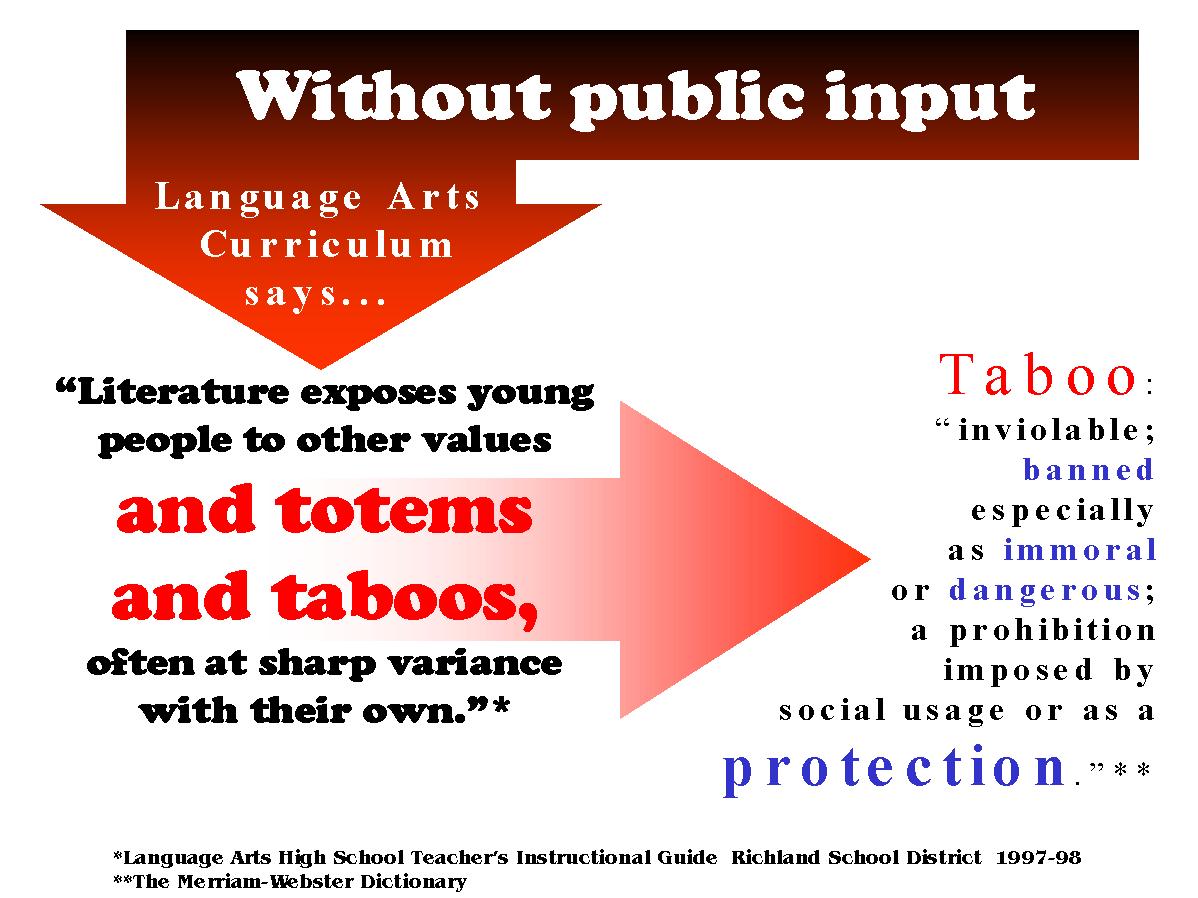
|








|
Slide 10 of 11

|








|
Slide 10 of 11
Without public input the Language Arts Curriculum says: "Literature exposed students to other values, and totems and taboos often at sharp variance with their own."
A taboo according to the dictionary is “inviolable; banned especially as immoral or dangerous; a prohibition imposed by social usage or as a protection.”
Exposing young people to other values, totems and TABOOS is listed as the fourth reason “why” it is important for students to study literature on page 2 of this document. It is not a mere statement of fact, but rather a statement that embraces and desires such exposure.
By definition a taboo is regarded BY SOCIETY to be prohibited as a protection, or banned due to it’s immoral or dangerous nature.
If the District had any community representation on the committee which wrote this guide, you would not find such wording because, I can assure you, parents do not support the schools exposing their children to taboos they have invested a lifetime in helping them to avoid. The public schools should not join the entertainment industry in exposing our students to taboos which are contributing to the demise of society.
The authors of the Language Arts High School Teacher’s Instructional Guide tell us on page 2 that they abide by the Richland School District Instructional Materials Policy (2311) This statement would lead a parent to believe that the 292 texts, which are a part of this same document, would also meet the requirements of policy 2311 and it’s R&R’s.
Policy 2311 says:”Instructional materials selection will be guided by the following principles the 4th principle is that these materials will “stimulate student growth in academic knowledge and skills, literary and aesthetic appreciation, MORAL STANDARDS, ETHICAL BEHAVIOR, and critical thinking skills” None of the “vicarious experiences” we object to in these books stimulate moral standards and ethical behavior - and by definition - the introduction of taboos of any kind violate this policy. (See excerpts of District Policies and District Curricula)
None of the “vicarious experiences” we object to in these books stimulate moral standards and ethical behavior - and by definition - the introduction of taboos of any kind violate this policy.
Not only does this curriculum not meet the requirements of our Instructional Materials Policy -- we have shown you this evening numerous policies this curriculum VIOLATES. We have also shown you that the seven books listed here do not have educational value consistent with the Richland School District’s policies and they do not support our integrated curriculum. They should be deleted from the list of adopted texts, and we urge you to make that move. But as we have stated all along, these books are merely representative of the poor quality literature in our high school L.A. program. Until you go back and fix the cause for this poor quality -namely this curriculum and it’s list of 292 books, which was written without ANY parental representation - you will continue to have complaints in the future. It is our request that you remove these seven books from the list of adopted texts. It is our prayer that you make the rewriting of this curriculum with parent and community involvement a goal of yours.